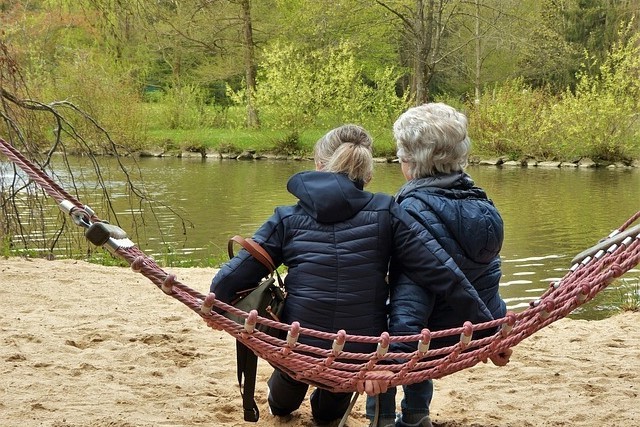Overcoming Challenges Women Face as They Get Older

Women in their 40s or 50s — or older — have a lot on their plates. They often have teenage or college-aged kids and are also possibly caring for grandkids or aging parents. Many may also find they are having problems with age discrimination as well as facing changing relationships and unique health concerns. And eventually, there’s retirement to think about.
What are some of the unique concerns and challenges that women face as they get older? Let’s examine some of them and come up with a game plan to tackle them.
Age Discrimination in the Workplace
Some women, as they get older, find themselves at high points in their careers. Others find themselves starting over, and neither is easy. Over 70% of women, when asked if people aged 45-74 years old were victims of potential age discrimination, answered “yes.” Those who were discriminated against claimed that the discrimination usually happened when trying to find a job.
You never know what life may throw at you, but it’s best to be prepared. Here are some things to consider if you have to consider a career change:
- Refrain from putting dates on your resume. Make it difficult for potential employers to determine your age.
- Stay up-to-date with technology. The world keeps advancing, and you need to, too.
- Keep in contact with friends in your profession. People would rather hire someone they know, and they may refer you to others.
- Learn the keywords for your line of work and use them in your resume. You want the computer to pick you out from thousands of applicants.
Some women are also subject to age-related microaggressions at work. It is not uncommon for a recent college graduate in the workplace to call an older co-worker “senile.” They simply don’t realize how hurtful that term may be. Younger people, when explaining something to an older person, may also speak slower and with a higher pitch, assuming a hearing issue when there may not be one. This can be demeaning.
Caring for Loved Ones
Women are typically the caregivers, the nurturers. As such, if help is needed down the road to care for family members like grandchildren or parents, you may need to step in. In addition, women may have teenagers or college-aged children at that time still living at home to worry about.

You may not think of your parents as aging, because you yourself are in the throes of life, career, and family. Then, one day, you look at your parents and it dawns on you: “When did they get so old?” When this happens, you may have to step in and help care for your parents, and that is not always easy. If you’re not careful, your career and family can pay the price, not to mention your pocketbook. By being prepared, however, you can thwart the negative effects.
Eventually, you might become the administrator of their estate — which can occur before or after their passing. If this occurs after their passing, it would fall to you to put your parents’ belongings into storage while details of their estate are being worked out. Then, you would organize those items and make sure they go to persons indicated in the will or to family members who want or can use them. No one wants to be put in this position, but keep in mind these details so you can expertly perform this duty should you be called to do so.
Age-Related Concerns
One thing you should think about early includes something many women — indeed many people — tend to not think about: retirement. People often think they will always be on their employer’s healthcare plan, even after retirement, but that is not necessarily the case. When you get close to that magic age of 65, if you don’t have a spouse with insurance, you may need to switch to Medicare. Just remember this, and you’ll be prepared. Most retirees have an initial enrollment period to enroll in Medicare from 90 days before their 65th birthday to 90 days after their 65th birthday. Also remember that when the time comes, you might need help enrolling in Medicare; it’s sometimes difficult to figure out.
Another thing you need to determine before you actually retire is your finances. Many women do not save enough during their working years and end up living on Social Security alone. Way before needing it, examine your current expenses to determine how much you’ve saved. From there, you can determine how much you would need to continue your current lifestyle after retirement and adjust the amount you are saving accordingly. During this process, make sure to factor in the increasing healthcare expenses you are likely to encounter after retirement. Medicare doesn’t pay for everything.
Health Concerns
You may be in the throes of career- and family-building right now, but you are getting older and your healthcare needs will change. Menopause will become a factor; when that happens, you may experience hot flashes, an increase in facial hair, difficulty maintaining weight, and even difficulty concentrating. Knowing these problems may eventually occur, however, is the first step in combating them.

As you grow older, your relationships may also change. Women tend to live longer than men and often find themselves alone as they age. Their relationships with their children may also change. These problems, in addition to some of the difficulties mentioned previously: taking care of an elderly parent or grandchildren, age-related microaggressions at work, or the inability to find work, can cause a tremendous amount of stress or even depression. What’s worse, women tend to ignore their mental and physical health, which can cause a whole array of problems down the road:
- Heart disease
- Addiction
- Diabetes
- Chronic pain
- Physical Injuries
Don’t Give in to Poor Health
Although stress and depression can lead to poor health as you get older, there’s no reason to believe that it’s inevitable. Practicing self-care can do a tremendous amount to make sure you beat signs of aging and stay healthy for years to come:
- Quit smoking
- Eliminate stress
- Eat a healthy diet
- Drink lots of water
- Take vitamins
Knowledge is power, and knowing the difficulties you may face as you get older can go a long way to alleviating those difficulties. Face aging with grace, dignity, and power!
This guest post was authored by Brooke Faulkner

Brooke Faulkner is a writer, mom and adventurer in the Pacific Northwest. She spends her days pondering what makes a good leader. And then dreaming up ways to teach these virtues to her sons, without getting groans and eye rolls in response.

